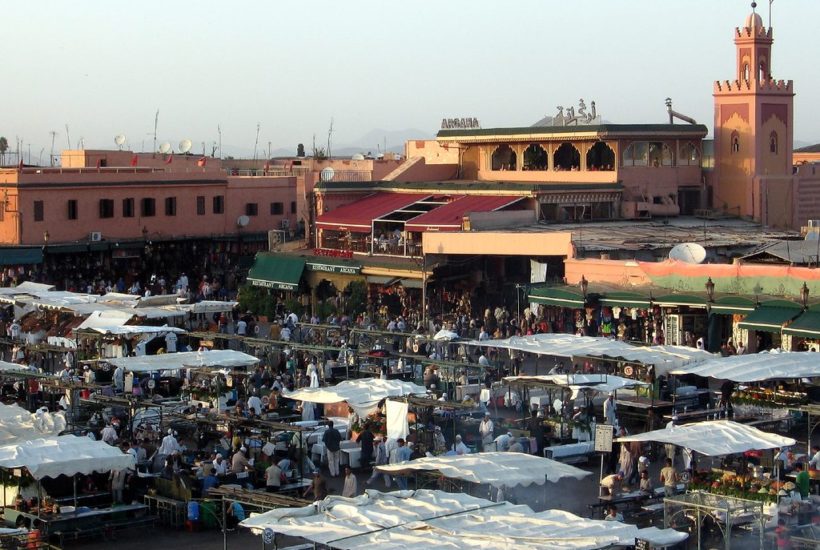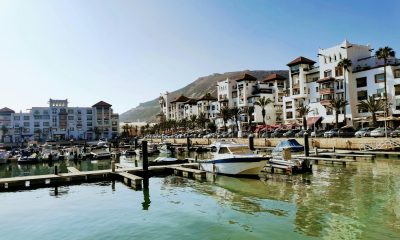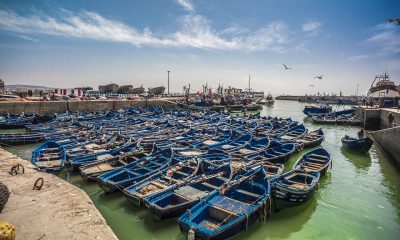Africa
National tourism management in Morocco: why a framework law is needed
In its latest opinion on the revival of national tourism in Morocco, the Economic, Social and Environmental Council considered that the clarification of the attributions of operators and public bodies depends on a major legal overhaul. The activation of the Moroccan Charter of Sustainable Tourism also remains a prerequisite, in addition to the promotion of social dialogue.

Among the key recommendations made by the Economic, Social, and Environmental Council (CESE) in its opinion issued earlier this week on the revival of tourism activity in Morocco is the development of a draft framework law for the sector. The proposal draws its legitimacy from the major findings that have been identified by the Council in its report, including those relating to the governance component. Indeed, the problem of the coherence of the orientations taken by the stakeholders in the sector has become more acute since the outbreak of the health crisis.
Read more about the revival of tourism in Morocco and find other important economic news with our companion app, Born2Invest.
Now, more than ever, the implementation of Vision 2030 seems almost impossible
In proposing the initiation of the framework law project, the EESC expects that the consultations that may ensue will help federate all stakeholders around a clear strategy with precise responsibilities for operators and public bodies. In its report, the Council made this point one of the prerequisites for the revival of the sector, insisting on the need for integrated and effective governance. To do this, the framework law on tourism would clarify the roles of operators, public institutions, and associations and would allow the overhaul of regulations affecting travel and tourism.
For the EESC, the repositioning of the sector is at stake. The proposed framework law should “promote an integrated strategic planning, involving a convergence of means and resources and a monitoring-evaluation for the entire value chain, through the activation of the high authority of tourism in charge of steering and monitoring-evaluation,” said the Council.
A new legal framework is needed for the revival of the tourism sector in Morocco
In addition to updating the legal framework of the sector, the EESC’s vision highlights the importance of establishing regional bodies in accordance with the current administrative division and to ensure better synergy between the Moroccan National Tourist Office (ONMT) and the Moroccan Society of Tourism Engineering (SMIT). The framework law should especially enlighten the investor on the opportunities offered by the tourism sector, and this, through “the revision of the role and prerogatives of the Observatory of Tourism by focusing on the strategic monitoring as well as the modernization of the satellite account of tourism and its maintenance. The current context also requires the amendment of the Moroccan Charter of Sustainable Tourism, “ensuring the convergence between the responsibilities of stakeholders, the attractiveness of destinations and social cohesion,” insisted the Council. This charter should be aligned with the priorities of the Sustainable Development Goals (SDGs), the 2030 Agenda and national strategies for sustainable development.
On the other hand, the promotion of social dialogue in the sector is an equally crucial point to be taken into account in the framework law recommended by the EESC. It is a matter of “prioritizing decent employment and the generalization of the social protection system to tourism workers and the protection of informal workers in precarious jobs,” as explained in the Council’s report. The legal roadmap, as recommended by the EESC, also focuses on the launch of a new generation of decrees that would be aligned with the requirements of competition from external markets, relying on strategic intelligence and technological innovation. “Standardization is a necessary element to accompany the national offer in its compliance with the standards of international markets in terms of sustainability, convergence, health safety and quality, “said the EESC.
The challenge of the regions
An insistent call was issued by the EESC to involve the Councils of the regions in the plan to revive the national tourism activity. “The advanced regionalization and the Charter of deconcentration constitute an opportunity to balance the development of tourism between territories and destinations,” said the Council, which recommends to correlate the national strategies of tourism, culture, crafts, youth and sport and sustainable development and to ensure the territorial declination. The adhesion of the regional councils to concretize the objectives of the recovery plan will have, in this framework, to elaborate development plans for the various territories, in phase with the regional strategies of sustainable tourism. It is ultimately to establish a new vision of the promotion of national tourism, based on the specificities of the territories and the comparative advantages of the regions.
__
(Featured image by Oliver Mallich CC BY-ND 2.0 via Flickr)
DISCLAIMER: This article was written by a third party contributor and does not reflect the opinion of Born2Invest, its management, staff or its associates. Please review our disclaimer for more information.
This article may include forward-looking statements. These forward-looking statements generally are identified by the words “believe,” “project,” “estimate,” “become,” “plan,” “will,” and similar expressions. These forward-looking statements involve known and unknown risks as well as uncertainties, including those discussed in the following cautionary statements and elsewhere in this article and on this site. Although the Company may believe that its expectations are based on reasonable assumptions, the actual results that the Company may achieve may differ materially from any forward-looking statements, which reflect the opinions of the management of the Company only as of the date hereof. Additionally, please make sure to read these important disclosures.
First published in LesEco.ma, a third-party contributor translated and adapted the article from the original. In case of discrepancy, the original will prevail.
Although we made reasonable efforts to provide accurate translations, some parts may be incorrect. Born2Invest assumes no responsibility for errors, omissions or ambiguities in the translations provided on this website. Any person or entity relying on translated content does so at their own risk. Born2Invest is not responsible for losses caused by such reliance on the accuracy or reliability of translated information. If you wish to report an error or inaccuracy in the translation, we encourage you to contact us.

-

 Crypto2 weeks ago
Crypto2 weeks agoCoinbase Surges: Bernstein Targets $510 as COIN Hits Highest Price Since IPO
-

 Biotech2 days ago
Biotech2 days agoBiotech Booster: €196.4M Fund to Accelerate Dutch Innovation
-

 Markets1 week ago
Markets1 week agoCoffee Prices Decline Amid Rising Supply and Mixed Harvest Outlooks
-

 Crypto6 days ago
Crypto6 days agoCaution Prevails as Bitcoin Nears All-Time High

























